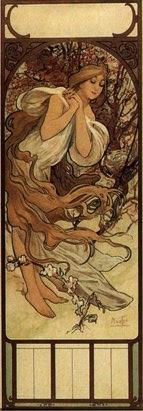
 Harris, Harris & Donahue Literary Agents http://harris-donahue.tripod.com |
The Right Honorable Sir William Wellborn smiles to himself as he rifles through his papers. They rustle softly inthe darkness. He looks around the empty House, home of the law-makers, society’s protectors. He is proud to be their leader. But then it was his birthright. All the Wellborns had been law-makers, leaders, men of vision. He had been particularly pleased with today. The House had been impressed with his oratory, his qualities of leadership had been never more apparent. There were still the old die-hards of course, clinging to their decrepit ideas of democracy. But things were changing rapidly. He was changing them. Life itself was changing, the old order passing. And his Bill would go through. He was sure of that. He frowns, remembering something, shrugs it away. He switches on the small light over his desk. The shadows crawl close, night deepens. He listens to the dark silence. What? For a moment then ... he’d thought ... Just so! He’d thought - imagined - as he’d imagined it before. He was tired, he would go home. He hesitates. Or should he stay and think it out; now, while it was still fresh in his mind, and then forget it? He switches on the light again Let’s see now, what had he been saying when he’d heard it? Somewhere towards the end of his speech - he couldn’t exactly remember where. Before or after his summing up? Or had it been? He sits down, trying to remember. The House had been tense, hanging on his words. “We all know that the Abortion Act is not working as it should. And, as it stands, it never will. Most of the medical profession and the Church, though the Church carries little weight these days, continue to oppose and obstruct it in every way. My Bill is designed precisely to overcome this opposition. Abortion should be made legally binding on all doctors; not only to ensure abortions for all who wish them, but also, where circumstances justify it, to enforce in cases where those forbidden to procreate insist on breaking the compulsory contraception law.” There had been a general murmuring in the House, a stirring of uneasiness. Had it been then? No. It had come later, when the House was hushed again, all eyes and minds fastened on him as he continued his speech. “We must prevent irresponsible and selfish people bringing into our world the unfit and the surplus human beings who can contribute nothing to our society except further problems and disasters. Mankind must be thinned out before the best are crowded out, as weeds crowd out the good plants. Is that what we want, a world of weeds?” It had been then that he’d heard, no, thought he’d heard it, like a ripple in his brain, a shadow moving across his mind, a voice, a word, repeated once, twice, softly: “Herod”, it had said. “Herod. Herod.” He had looked over to where his only strong opponent sat, Bishop Duval. Duval was the only churchman left in the Common House of Law Makers, tolerated chiefly for his age and his long standing as a member. But he still had power in the Church. Duval, he remembered, had called him that very word in the early stages of the Bill. “Herod!” he had thundered out to him. “Slaughterer of innocents! Slayer of the unborn!” But today Duval had been strangely silent. As if he’d given up the fight, or as if... A slight breeze murmurs through the high window. The great curtains flap. A small, but startling. Wellborn is startled, then angry with himself. He was a fool to stay here, remembering! And yet... He remembers the Grey Man, sitting alone in the visitors’ gallery, as he had every day throughout the debate. An old man, grey-suited, grey-haired, grey-faced. He knew him? No. And yet there was something familiar about the old man. Wellborn sits in the darkness. Remembering. Remembering the grey Man. Duval groans softly as he recalls the day, the dreadful day. He should have spoken up, tried once more to stem this terrible tide of power. But he had been silent throughout the day’s proceedings. Today, with this infamous Bill nearing it’s final stages, voiceless, letting evil be done, while that arrogant Wellborn rushed through yet another Bill of murder! He groans aloud. He was an old man, worn out. He was a broken voice crying in the terrible wilderness, an ancient reed bent low by the icy winds of change. But yesterday, he had tried... “The House well knows my views on abortion,” he had thundered. “And on every other law this glorified social welfare worker has forced, or tried to force, upon this House of our nation. I have sat heartsick, helpless, despairing, while he has put before you evil upon evil. Selective marriage, wedlock forbidden to the unfit; you balked at that, but what did he offer in its place? Compulsory contraception for the so-called unfit! And you passed that. You allowed abortion by consent because he pushed it. You refused its abolition because he pleaded against it, despite irrefutable evidence that the medical profession and the country as a whole was against it and considered it evil. Now, compulsory abortion! State murder! Are you going to allow that?” He had looked around the silent House. “How many of us,” he had asked, “here in this House, in this world, would now be alive if abortion had prevailed in our parents’day? We were allowed to be born, conceived in love, permitted to live, to grow. Will you deny others what we ourselves were given the precious gift of life, the gift to be?” He might have swayed them then if he’d remained calm. But for a moment his eyes had met Wellborn’s, saw the contempt in them, for himself and for all he represented. “Can’t you see,” he had thundered out at them, “can’t any of you see the way this man’s power is growing? What next will he ask for? I’ll tell you what next - euthanasia! First, death by relatives’ wish or consent, then death by compulsion. He won’t be content with saying who should come into this world, he’ll want to say when we should leave it. When to kill off the old, the feeble, like sick dogs, regardless of their right to live out their God-given span. And it won’t stop there! He’ll dispatch anyone who doesn’t fit in with social or world requirements, who makes a mess of his blueprint for that mythical, marvelous world his warped mind envisages.” “In the plain-speaking words of which the Right Honorable Member is so fond, if he had been aborted over forty years ago this world would have gone a long way to becoming a finer place he says he wishes it to be!” He had turned then on Wellborn. “In the Name of God and all creation, who, what, do you think you are? You are not God! You are not even worthy to be called a man!” There had been uproar then in the House, voices protesting, a few approving. “Order! Order!” cried the Speaker. “I will have order!” The house had quietened. Not because of the Speaker, but of Wellborn, who stood there, magnificently unperturbed by the fracas, quietly smiling. Duval shudders at the memory, sees again that striking figure, so sure, so confident in his power. He hears Wellborn’s voice, calm, cool, ignoring Duval’s outburst, ignoring him. “Pass the law to fit the circumstances,” he had said in his firm, clear voice. “This you have always done. Now we need this law. We might never have to enforce it, but we need it. Yes, it is hard, but what is our alternative? Is it not better to do the deed before rather than after birth? We can, we must, prevent more illegal births to those forbidden to procreate. We can, we must prevent births of the unfit, the malformed, the idiots, the uneducable. We can, we must, stem the tide of surplus human beings who threaten to engulf the rapidly dwindling spaces of this Earth!” “This is mankind’s sole remedy, its long-term defense, and ultimately its glory!” Wellborn’s hated voice bites deep into Duval’s mind. How to stop him? How to..? He hears a light rapping on his door. Who would call so late? “Come!” he says. The door opens. Duval stares at his visitor, trying to place him. Then as old eyes meet, gnarled hands grip in greeting. Duval has remembered. “Morning! Sit down, old friend, sit down. There is much to be said between us” The Grey Man sits. Impatiently, Wellborn puts the papers in his case, closes it. He would go home. Another hard day tomorrow. Anyway, this was ridiculous. He hadn’t heard a thing. The sound was probably just the echo of his own voice when he had finished speaking. He frowns, not liking the thought engendered. His own voice? His conscience? Nonsense! Heart and mind he is for this Bill. It is his baby. He smiles at the apt phrase. It had been he who had pushed through the original Bill, advocated it, fought for it, upheld it whenever it had seemed threatened with abolition. He grins suddenly. Was he not known as ‘Abortion Bill’? He was pleased with the tag. And he was keeping up with the Wellborn family tradition. Yes, there could be no doubt about it, he was a born leader, and the House certainly knew it. His grin deepens. Not bad for a man of his years, for one who... He tenses, listening. Then, just then,? He shakes himself angrily. He had heard nothing, neither then nor before. It had been, well, an echo of Duval’s outburst perhaps, lingering somewhere in the chambers of his own mind. He mustn’t let that confounded churchman get to him and... His thoughts cease abruptly. Distinctly, clearly, he hears it. The same voice. It whispers out to him from the crawling shadows, from the thick blackness of the vast, empty House. Now, as before, a word, repeated once, twice, softly! “Herod!” it says. “Herod! Herod!” “And that’s the story of the Wellborns to date,” says Duval grimly. “True to pattern, eh, Morney?” “How did he get such power?” Morney’s eyes are grave, troubled. “And in so short a time!” “God knows!” groans Duval. “It just seemed to happen. Six years ago there was no Wellborn on the political scene. Suddenly there he was. And soon, a good many people who would have lived were not!” “But where did he come from?” asks Morney, puzzled. “Tasmania, I presume. Soon after he was born his mother took him there. I wish to God he’d stayed there, died there!” Duval looks curiously at Morney. “But you know more about him than I do. You brought him into the world.” Morney’s face becomes grayer, his eyes avoid Duval’s. He says slowly: “That’s why I came to see you.” He pauses, forcing himself to look at Duval. “What if I were to tell you...” Morney,s voice thickens “that Sir William Wellborn does not exist?” The small light is a comfortless speck in the enveloping gloom. Wellborn can barely see the great doors through which he must pass to leave the Chamber. They seem a long way from him. He is not afraid, merely cautious. But he is glad of the light. It helps him to think, to reason this out. He hadn’t heard it, not really, not consciously... Again the voice: “Herod!” And again “Herod! Herod!” A rush of rage overcomes him. He wheels angrily, calling out: “Duval, is that you?” Silence. Nothing. “How’s it fixed, Duval? Hidden microphones in the rafters, behind the curtains, in the visitors’ gallery?” He laughs mockingly. “A little old, aren’t you, for such damn silly tricks! How did you get them up there? Did your angels help you? Trying to make me believe it’s heavenly voices, voices of vengeance, eh? Eh, Duval?” He feels better now that he knows. For of course it had to be Duval, playing a senile trick in the hope of scaring him. A ludicrous and desperate ruse thought up by an old fool. He chuckles. When the House heard about this, Duval would be finished! But a thought still nags at him. How was it worked? A recording, timed for periodic haunting? Or was Duval still there in the House, somewhere in the darkness? Wellborn’s voice, harsh, raw, tears through the silence. “It won’t work, churchman! This is Wellborn you’re dealing with. ‘Abortion Bill’ remember? To hell with you and your damn tricks! To hell with you and your damn morals!” Silence. Nothing. “That’s my voice, Duval, do you hear? This House is filled with my voice, with my laws, with me!” He stops abruptly, appalled at his own screeching. He listens. Nothing. Not even his own breathing can he hear. The air is dead, the darkness dead.
|
||||||||||||||||



